Local Pols Say They Were Kept In The Dark On Gravesend Oil Spill; DEC Responds
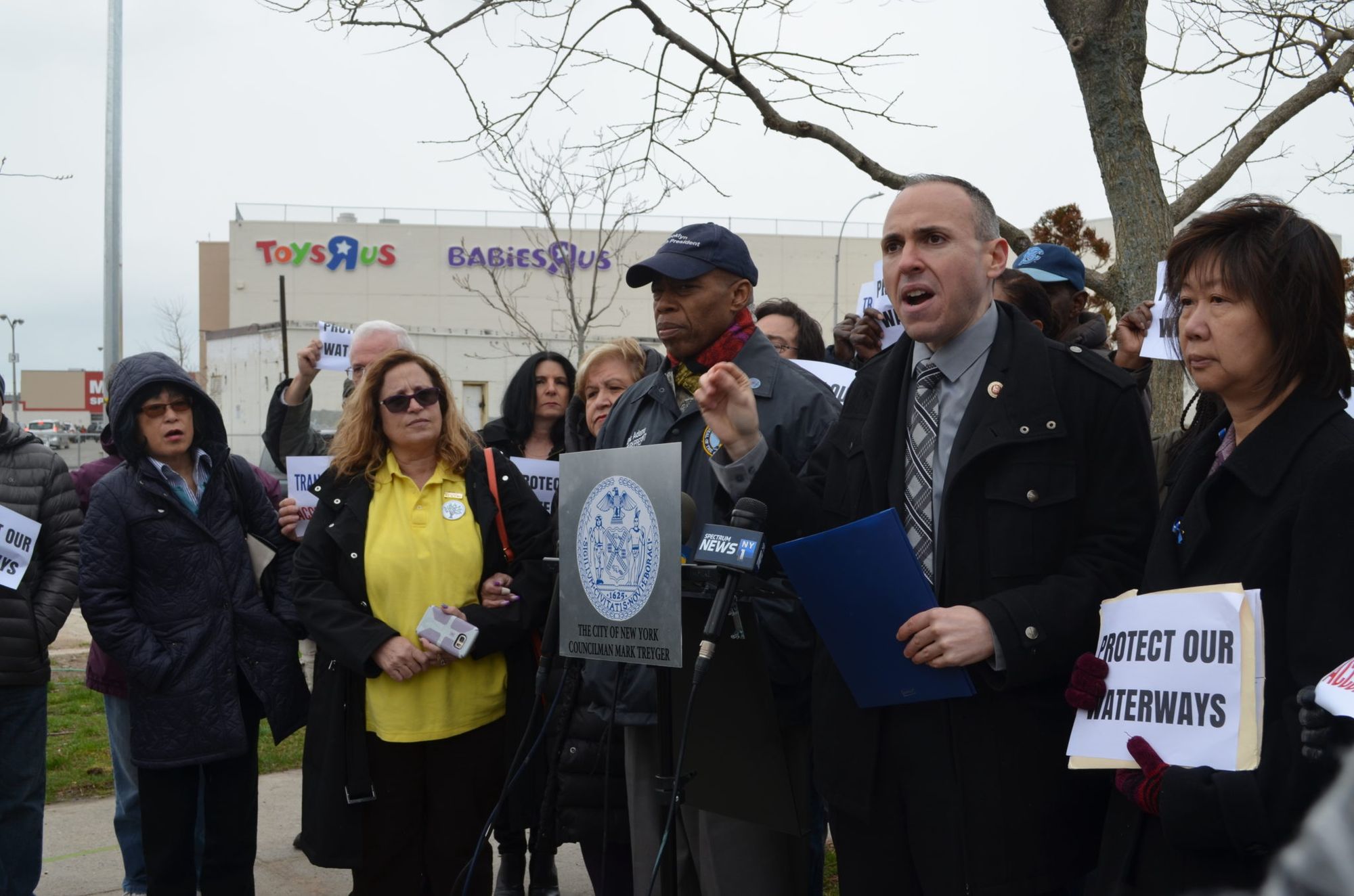
“Stop Dumping On Us” shouted local pols, civic leaders, and advocates this morning near the site of a 27,000-gallon diesel oil spill into the Gravesend Bay last week — shaming environmental protection agencies for failing to notify them about the spill.
“The Gravesend Bay and Coney Island Creek are not some toilet bowl for the government and private industry,” shouted Councilman Mark Treyger, Boro President Eric Adams, District Leader Nancy Tong, Public Advocate Letitia James, Comptroller Scott Stringer, environmental activists and several others who took the podium.
However, State environmental conservation law does not require public notification for this kind of spill, a NY State Department of Environmental Conservation rep told BKLYNER. They also claim to have “notified various local elected officials multiple times to inform them of the state’s response and oversight of the incident” earlier this week.
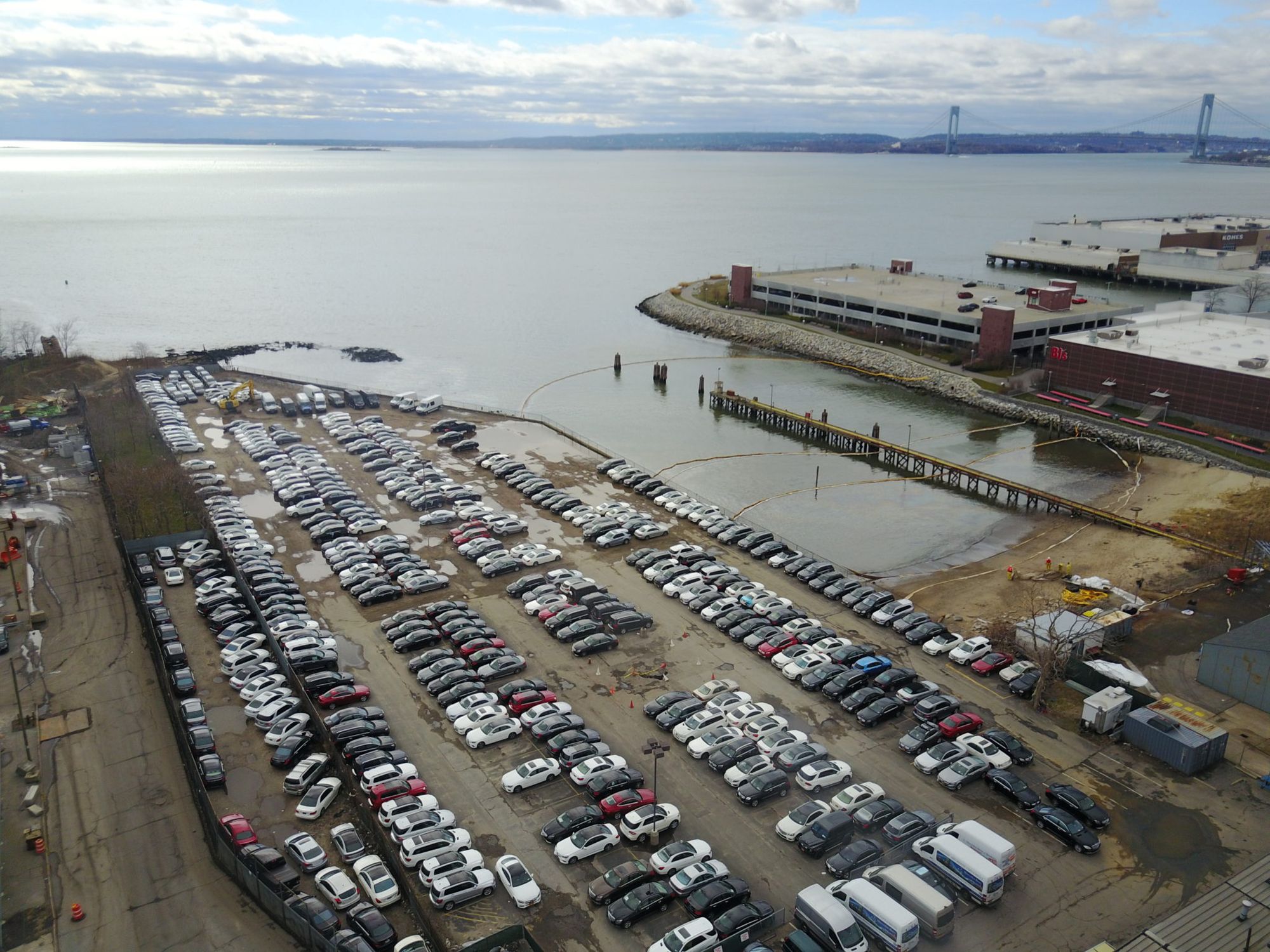
Treyger, who’s district falls just short of the Bayside Depot itself, was outraged that he found out about the spill via an email chain from local advocates late Monday night, four days after 27,000 gallons spilled from the Bayside Oil Depot in Gravesend.
At that time, no one from any state, city, or federal agency had contacted his office, he said. Treyger connected this communication void to a massive raw sewage dump into the Coney Island Creek in 2015 — which the DEC failed to announce for 2 years. (The DEC is currently negotiating a settlement with the polluters, Beach Haven Apartments).
Later in the week, Treyger said he was copied on an another email chain, an internal memo between the State DEC, EPA, and Coast Guard — agencies leading the cleanup efforts on the bay. “It said, ‘Media Interest: None.’ Look at all the media here today!” shouted Treyger.
However, BKLYNER had reached out to DEP officials by Friday afternoon.
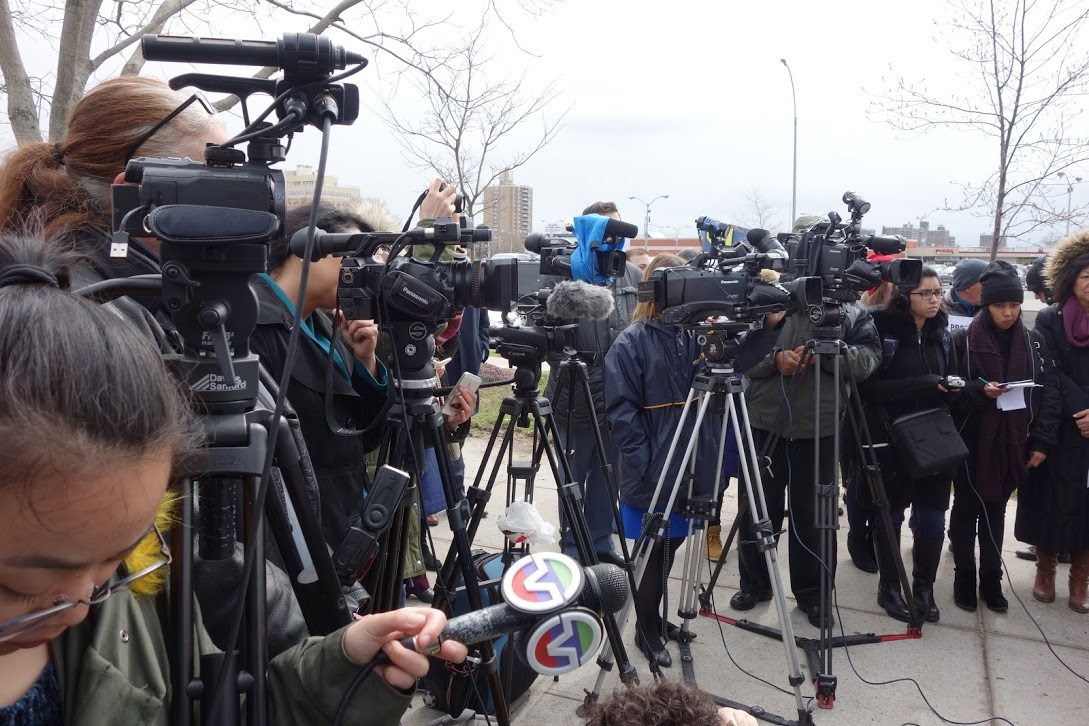
Did agencies keep politicians in the dark? Competing claims
By Monday night, other pols whose districts include the Depot had also not been contacted, including State Senator Diane Savino, Assembly Member William Colton, and Assembly Member Pamela Harris. “There’s clearly jurisdictional issues here,” said a rep from Savino’s office.
City Council Member Vincent Gentile posted to a statement on facebook stating that he had been in touch with several agencies over the weekend, naming the DEC, the governor’s and the mayor’s office. It remains unclear how Gentile initially learned about the spill.
The EPA contacted U.S. Congressman Dan Donovan on the day of the spill, though the EPA’s assistance was not requested by the lead agency onsite. But the memo was not intended for public release at that time, according to staff. After hearing about the outrage over accountability, Donovan sent a letter to the EPA questioning their internal communication protocols.
“You don’t solve environmental issues by covering it up,” said Adams, of the environmental agencies responding to the spill. “If this had happened on Park Avenue in Manhattan, I believe that people would have been notified.”
Responding to the accusation, a State DEC official said that they had reached out to Treyger’s office, along with the mayor’s office, earlier in the week.
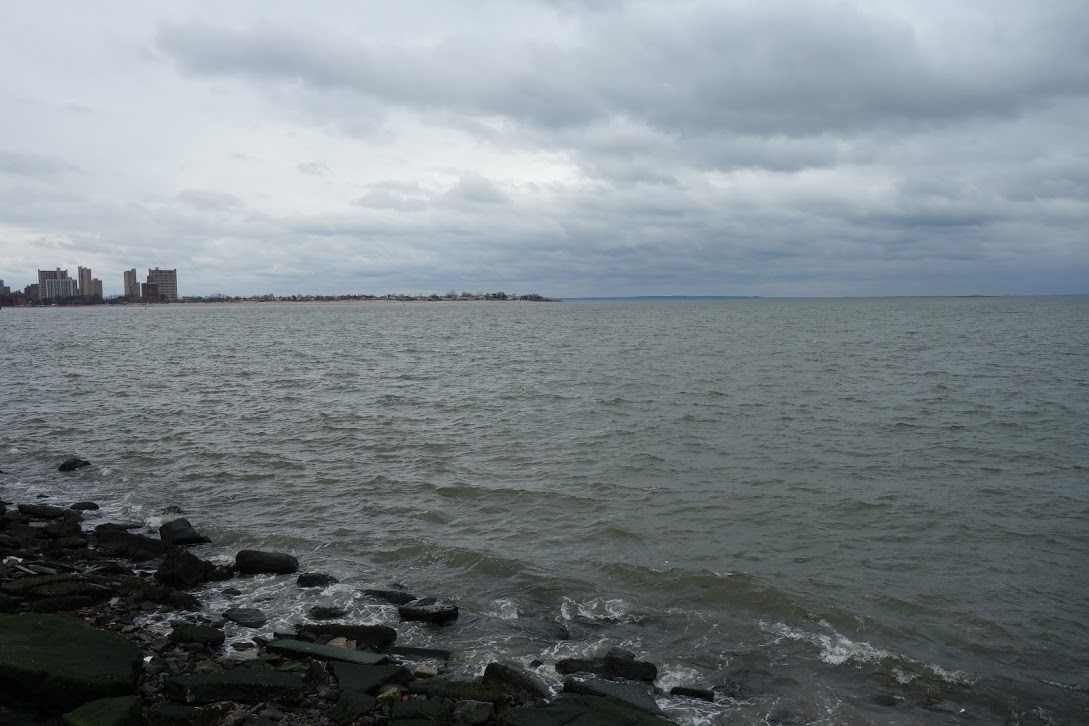
The future of the Gravesend Bay
As of now, the shoreline impacts appear to be minimal, said the State DEC and U.S. Coast Guard.
So far, of the 27,000 gallons of fuel that originally leaked, 12,000 gallons were pulled from the nearby soil and 500 gallons entered the water, said the DEC — who pointed their fingers at the Bayside Fuel Depot.
“This blatant disregard for safety protocols led to a preventable diesel spill that has impacted Gravesend Bay,” said DEC Commissioner Basil Seggos, who promised that the state is investigating to “ensure these polluters are held accountable.”
Comptroller Stringer’s office is also proposing an audit of communication, cleanup, and holding oil companies accountable. The DEC is also poised to issue fines to the polluters per the Environmental Conservation Law, which could cost up to $37,500 per day per violation, said a State DEC official. Exact fines are pending a full investigation.
But some advocates it’s too late, and the potential fallout from the diesel spill could affect marine life in the entire metro area.
“If you live in Manhattan, Queens, Long Island, or New Jersey — guess what, this is your problem, too. A lot of the fish that show up in your fish market and end up on your dinner plate are caught right here,” said Ida Sanoff, Chairperson of the National Resources Protective Association.
On Sunday, students noticed the oil sheens washing up along the coastline, said Lane Rosen, Marine Biology teacher at John Dewey High School. “They asked me ‘what will be the ramifications for the marine ecosystem?’ I had to tell them, ‘we don’t know. But it’s not good,” he said, noting that the city has already lost hundreds of thousands of wetland acres.
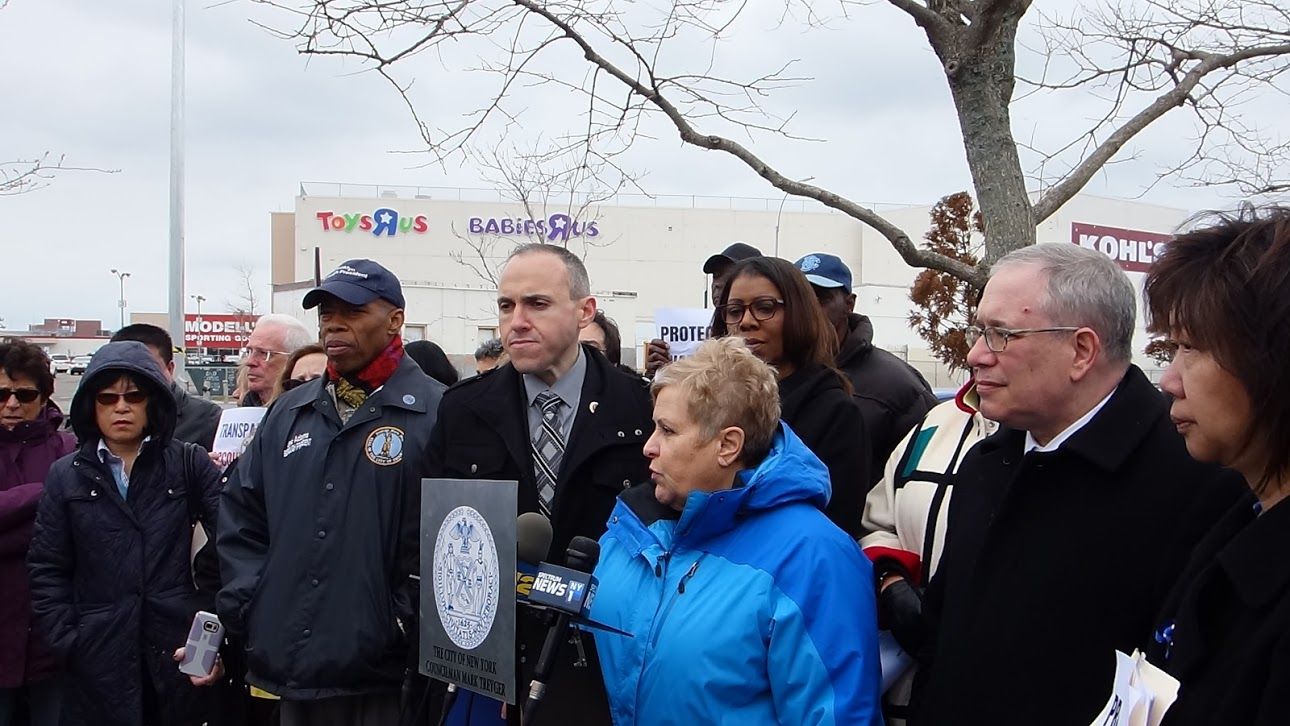
What went wrong on the morning of March 30?
“It was human error,” said Robert Sellavan, spokesperson at the Bayside Fuel Depot, on Thursday. But now, “for all purposes, it’s clean,” Sellavan noted that at the time of the spill, the company contacted the proper agencies (the DEC and Coast Guard), who showed up within 20 minutes.
The FDNY, however, were notified 12 hours later, which is against protocol, an FDNY source told BKLYNER.
The person responsible was a long-time employee of the company who allegedly lost track of the time while on-duty, they said. But that still leaves some loose ends, for example, the depot is supposed to have two agents — one on each side of the transfer, along with malfunction alarms if something has gone wrong.
In addition, oil transferring is a slow process, for this much oil to have spilled it could have taken 20 minutes, they said.
The communication cycle
Who is responsible for alerting the public after an oil spil? There are many state, city, and federal agencies involved in oil spill remediation and response — and the Gravesend spill in particular. But after spending a few days trying to answer this question, we heard a few competing answers to this question.
Representatives from the City Office of Emergency Management and the New York Coast Guard division pointed to the State DEC as the responsible party for informing the public. But the DEC responded to our queries by saying that by law, they’re not required to notify the public about these kinds of spills.
However, they said that they did reach out to Treyger’s office — but at that point, he had already found out about the spill from community members.
For the New York Coast Guard division, public communication happens on a case-by-case basis. “We get reports as small as a few gallons,” said Charles Rowe, Public Information Officer from the NY Coast Guard. “We don’t have a protocol for broadcasting every one, we have them literally every day.”
The State DEC manages a water quality alert system which notifies subscribers by phone, email or text of potential health and safety issues — a system that wasn’t triggered by the raw sewage dumped into the Coney Island Creek in 2015, or the recent oil spill in the Gravesend Bay.
But the reason, said an official, is because those alerts go off when something “impacts water infrastructure”. Oddly enough, that doesn’t seem to include diesel oil — or literal crap — seeping into the water.



